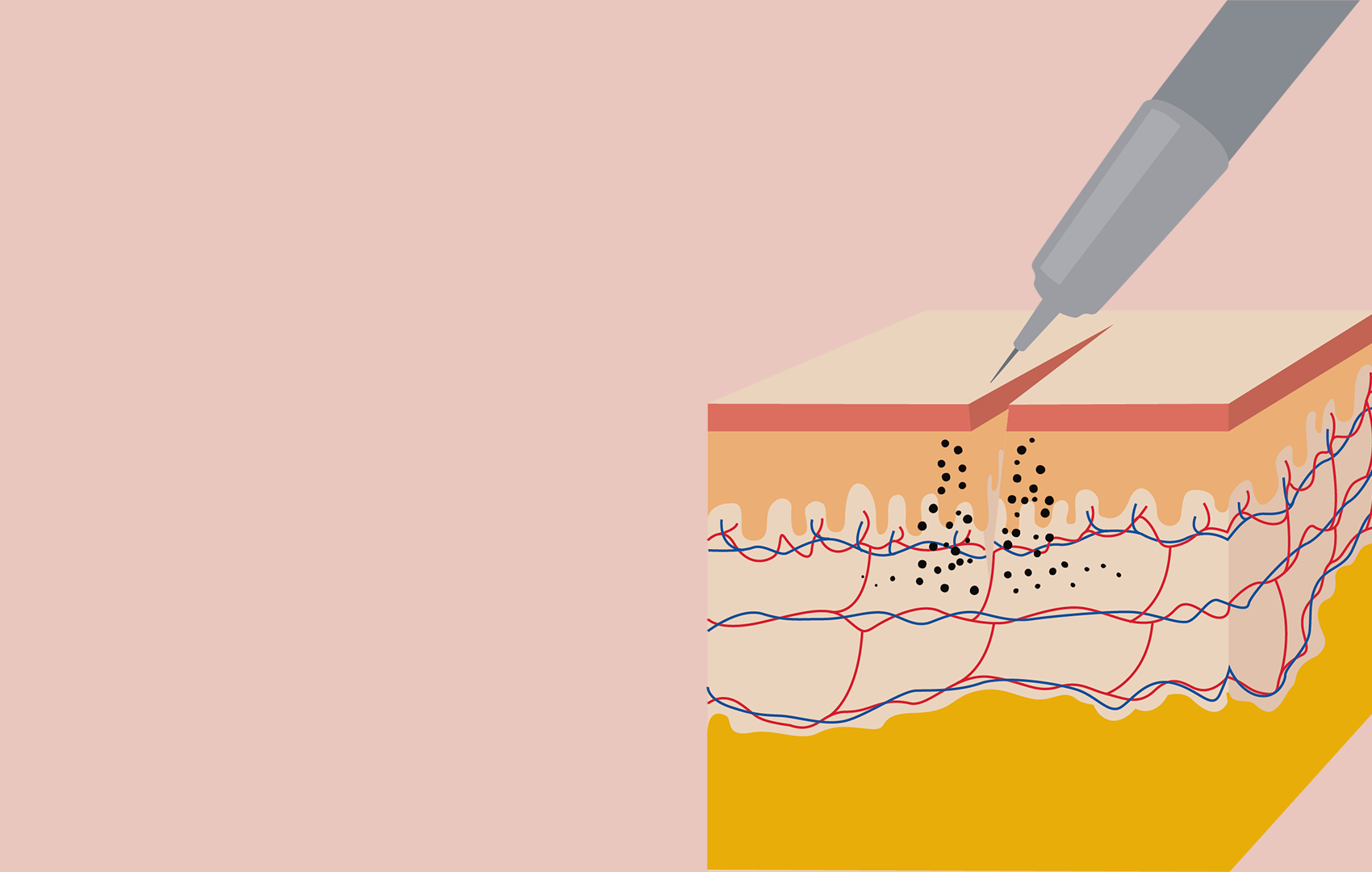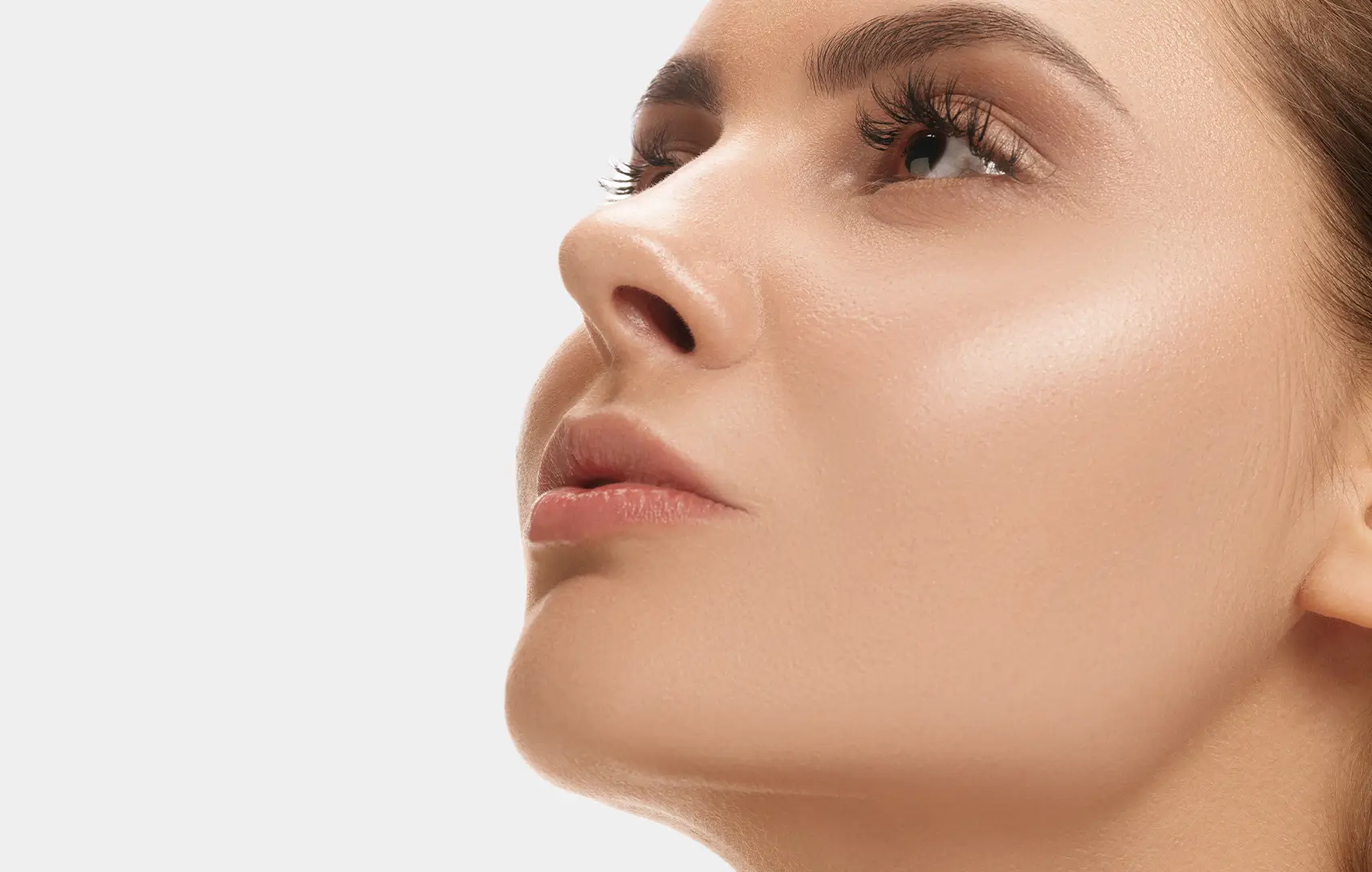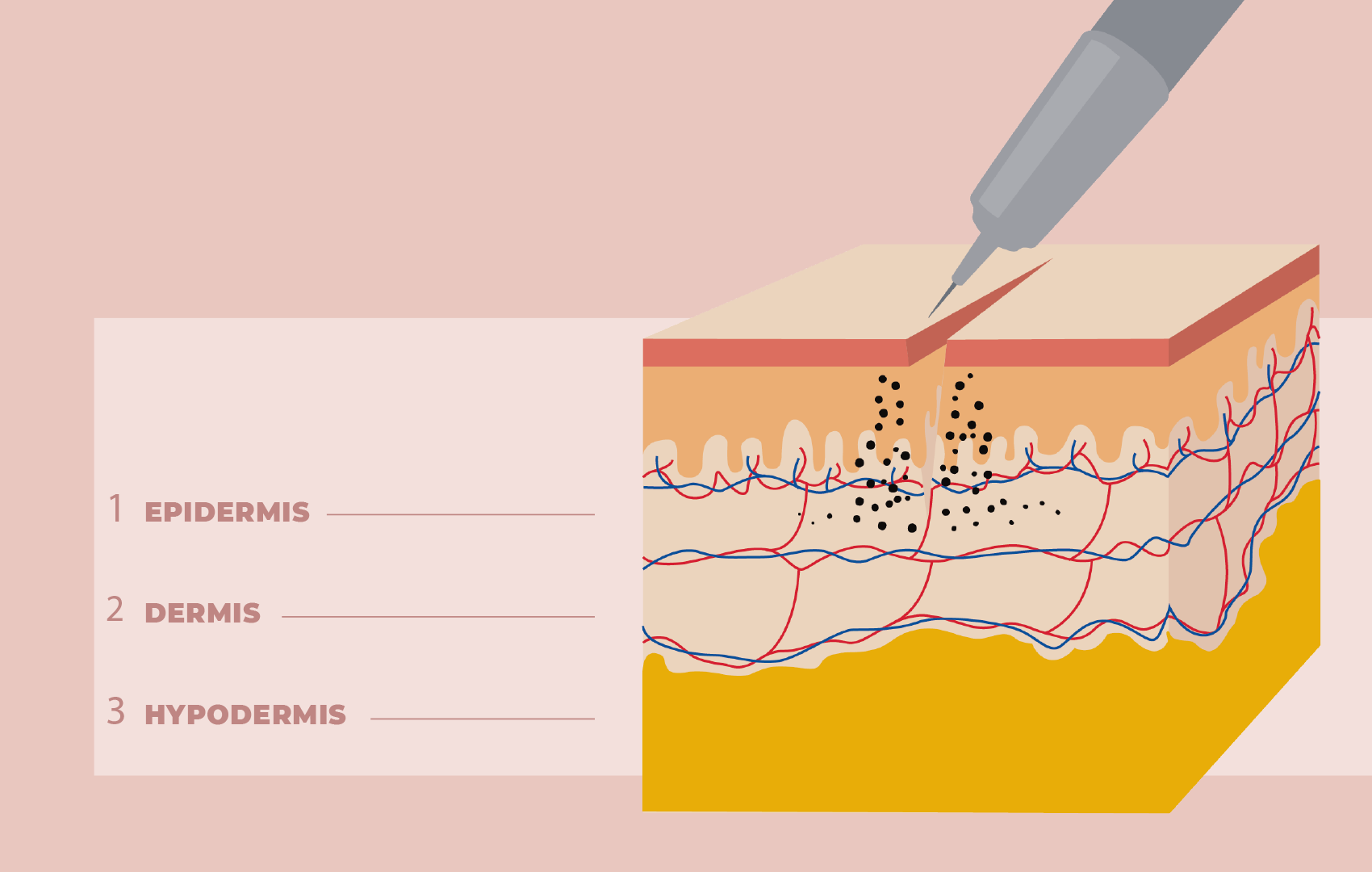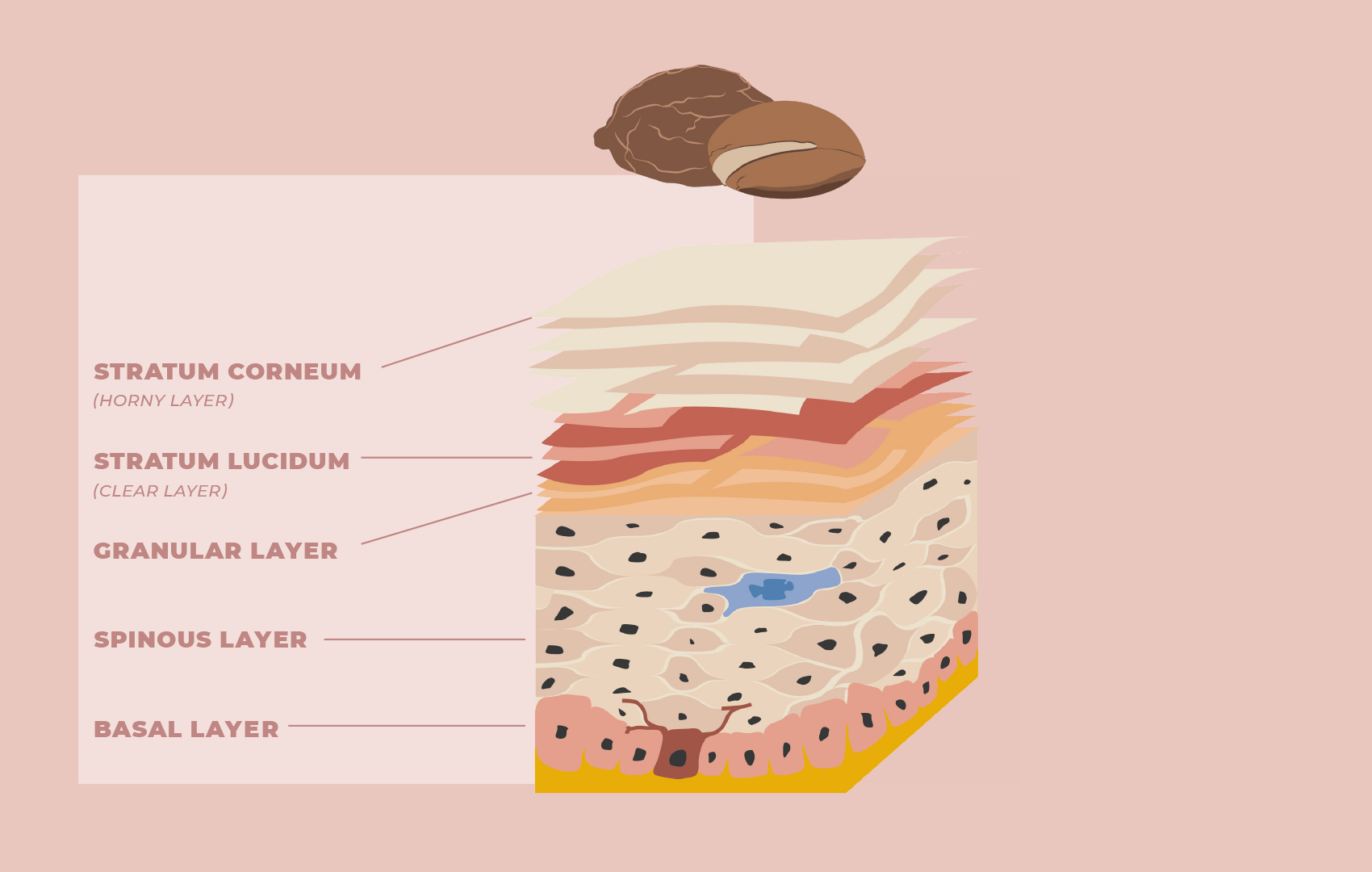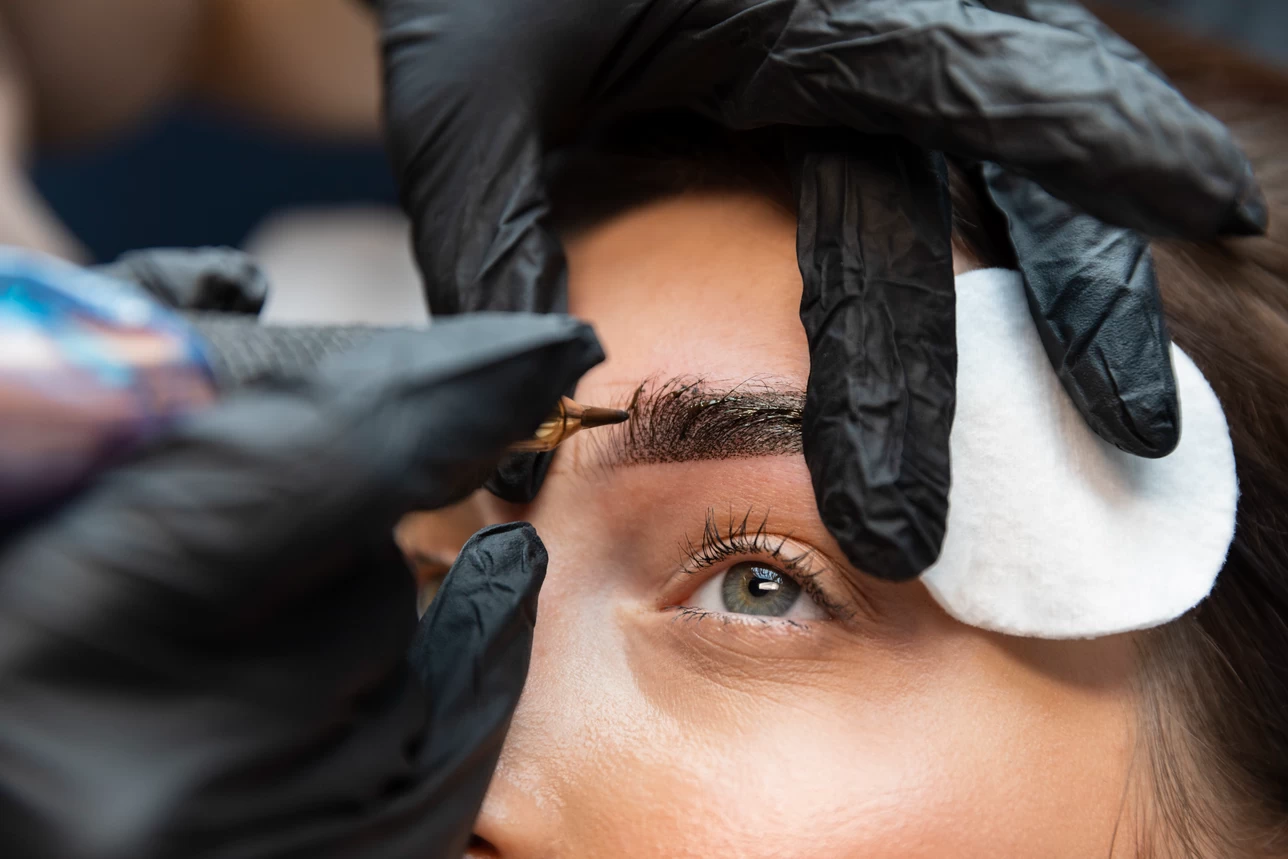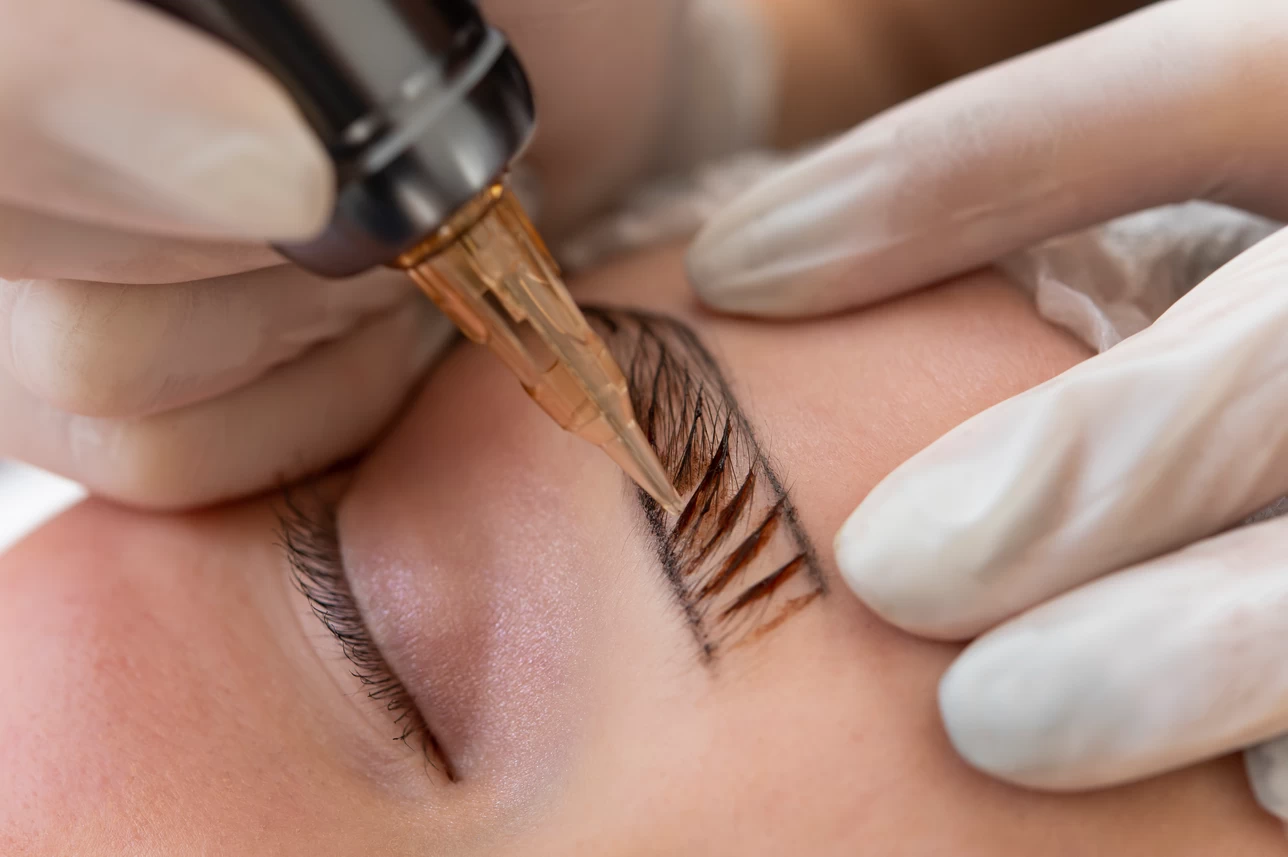There are 3 liquids in the skin: water, blood and grease.These affect the spreading of the pigments. After careful consideration of the skin’s condition, the PMU artist must choose the right PMU technique for the client!
As the skin gets irritated during PMU, it is very important to take good care of it even in the post-procedural period! The skin need to calm down and start the healing process itself. PMU Artists must tell the client the required rulesfor after care including mechanical damage, picking, scraping or rubbing the fresh PMU as these can disrupt the recovery process, the pigments might not build in perfectly and the PMU will not look aesthetically pleasing.
